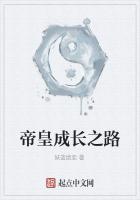1798 - 1800
Nelson returns to Naples--State of that Court and Kingdom--General Mack--The French approach Naples--Flight of the Royal Family--Successes of the Allies in Italy--Transactions in the Bay of Naples--Expulsion of the French from the Neapolitan and Roman States--Nelson is made Duke of Bronte--He leaves the Mediterranean and returns to England.
*NELSON's health had suffered greatly while he was in the AGAMEMNON.
"My complaint," he said, "is as if a girth were buckled taut over my breast, and my endeavour in the night is to get it loose." After the battle of Cape St. Vincent he felt a little rest to be so essential to his recovery, that he declared he would not continue to serve longer than the ensuing summer, unless it should be absolutely necessary; for in his own strong language, he had then been four years and nine months without one moment's repose for body or mind. A few months' intermission of labour he had obtained--not of rest, for it was purchased with the loss of a limb; and the greater part of the time had been a season of constant pain. As soon as his shattered frame had sufficiently recovered for him to resume his duties, he was called to services of greater importance than any on which he had hitherto been employed, which brought with them commensurate fatigue and care.
The anxiety which he endured during his long pursuit of the enemy, was rather changed in its direction than abated by their defeat; and this constant wakefulness of thought, added to the effect of his wound, and the exertions from which it was not possible for one of so ardent and wide-reaching a mind to spare himself,nearly proved fatal. On his way back to Italy he was seized with fever. For eighteen hours his life was despaired of; and even when the disorder took a favourable turn, and he was so far recovered as again to appear on deck, he himself thought that his end was approaching--such was the weakness to which the fever and cough had reduced him. Writing to Earl St. Vincent on the passage, he said to him, "I never expect, my dear lord, to see your face again. It may please God that this will be the finish to that fever of anxiety which I have endured from the middle of June; but be that as it pleases his goodness. I am resigned to his will."The kindest attentions of the warmest friendship were awaiting him at Naples. "Come here," said Sir William Hamilton, "for God's sake, my dear friend, as soon as the service will permit you. A pleasant apartment is ready for you in my house, and Emma is looking out for the softest pillows to repose the few wearied limbs you have left." Happy would it have been for Nelson if warm and careful friendship had been all that waited him there. He himself saw at that time the character of the Neapolitan court, as it first struck an Englishman, in its true light;and when he was on the way, he declared that he detested the voyage to Naples, and that nothing but necessity could have forced him to it. But never was any hero, on his return from victory, welcomed with more heartfelt joy. Before the battle of Aboukir the Court at Naples had been trembling for its existence. The language which the Directory held towards it was well described by Sir William Hamilton as being exactly the language of a highwayman. The Neapolitans were told that Benevento might be added to their dominions, provided they would pay a large sum, sufficient to satisfy the Directory; and they were warned, that if the proposal were refused, or even if there were any delay in accepting it, the French would revolutionise all Italy. The joy, therefore, of the Court at Nelson's success was in proportion to the dismay from which that success relieved them. The queen was a daughter of Maria Theresa, and sister of Maria Antoinette. Had she been the wisest and gentlest of her ***, it would not have been possible for her to have regarded the French without hatred and horror; and the progress of revolutionary opinions, while it perpetually reminded her of her sister's fate, excited no unreasonable apprehensions for her own. Her feelings, naturally ardent, and little accustomed to restraint, were excited to the highest pitch when the news of the victory arrived. Lady Hamilton, her constant friend and favourite, who was present, says, "It is not possible to describe her transports; she wept, she kissed her husband, her children, walked frantically about the room, burst into tears again, and again kissed and embraced every person near her; exclaiming,"Obrave Nelson! O God! bless and protect our brave deliverer! O Nelson!
Nelson! what do we not owe you! O conqueror--saviour of Italy! O that my swollen heart could now tell him personally what we owe to him!" She herself wrote to the Neapolitan ambassador at London upon the occasion, in terms which show the fulness of her joy, and the height of the hopes which it had excited. "I wish I could give wings," said she, "to the bearer of the news, and at the same time to our most sincere gratitude.
The whole of the sea-coast of Italy saved; and this is owing alone to the generous English. This battle, or, to speak more correctly, this total defeat of the regicide squadron, was obtained by the valour of this brave admiral, seconded by a navy which is the terror of its enemies. The victory is so complete that I can still scarcely believe it; and if it were not the brave English nation, which is accustomed to perform prodigies by sea, I could not persuade myself that it had happened. It would have moved you to have seen all my children, boys and girls, hanging on my neck, and crying for joy at the happy news.















